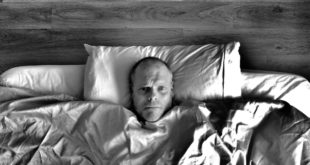Tinnitus is the perception of a sound in the absence of an external noise. It is a very prevalent experience; studies vary slightly but it is generally accepted that tinnitus affects between 10% and 15% of the population. Tinnitus can affect all age groups, including children, but a person is …
Read More »Very Long-Term Outcome of Cognitive Behavioral Therapy for Insomnia: One- and Ten-Year Follow-Up of a Randomized Controlled Trial
People who have received CBT to treat their insomnia can benefit from the treatment for at least a decade – this we can claim, with some confidence, based on our new study. Considering our participants had been suffering from poor sleep for more than ten years when the treatment started, …
Read More »Predictors of treatment attendance and adherence to treatment recommendations among individuals receiving Cognitive Behavioral Therapy for Insomnia
Insomnia is very common, affecting up to 37% of adults, and is linked to a host of mental and physical health problems. Cognitive Behavioral Therapy for Insomnia (CBT-I) is recommended as the first line treatment for insomnia by the National Institutes of Health, the American Academy of Sleep Medicine, and …
Read More »Insomnia and Eating Expectancies among College Students: The Role of Emotion Dysregulation
Many college students experience symptoms of insomnia. Unfortunately, college students who experience problems with sleep may also be at risk for engaging in unhealthy behaviors such as maladaptive eating patterns and behaviors. However, little is understand about why insomnia and aspects of eating are related. The current study examined difficulties …
Read More » Cognitive Behaviour Therapy A peer reviewed, multidisciplinary journal devoted to the application of behavioural and cognitive sciences to clinical psychology and psychotherapy.
Cognitive Behaviour Therapy A peer reviewed, multidisciplinary journal devoted to the application of behavioural and cognitive sciences to clinical psychology and psychotherapy.



